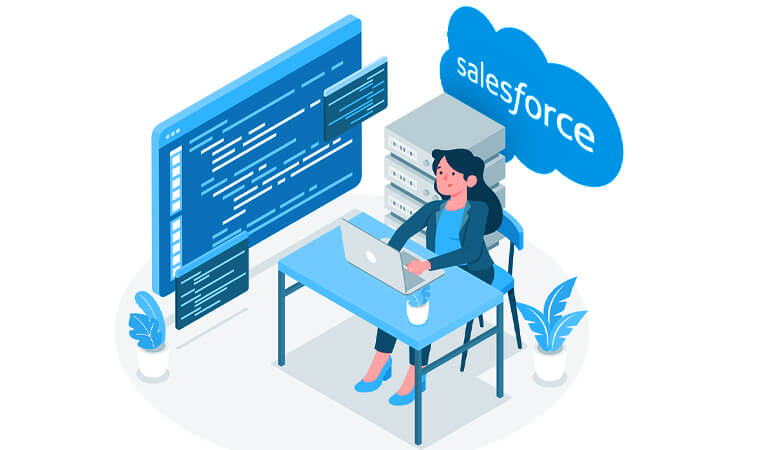However, with the rise of data privacy regulations, including the European Union’s General Data Protection Regulation (GDPR) and the California Consumer Privacy Act (CCPA), organizations must ensure their Salesforce implementations are secure and compliant. Building Salesforce solutions that meet these stringent privacy requirements is crucial not only for avoiding hefty fines but also for maintaining customer trust and competitive advantage.
Understanding GDPR and CCPA Requirements
Both GDPR and CCPA focus on protecting personal data, granting users enhanced rights and control over their information. GDPR applies broadly to companies processing personal data of individuals in the European Economic Area (EEA), emphasizing principles such as data minimization, purpose limitation, and explicit consent. It grants data subjects rights including access, deletion (the “right to be forgotten”), data portability, and breach notification obligations.
CCPA, though specific to California residents, imposes robust requirements such as the right to know what personal information is collected, the right to opt-out of data sales, and non-discrimination protections for consumers exercising their rights. Notably, CCPA mandates businesses to provide “Do Not Sell My Personal Information” options in online experiences.
Salesforce customers must recognize that compliance is a shared responsibility: while Salesforce provides a secure platform with many in-built privacy capabilities, businesses must configure and use these tools correctly while establishing compliant policies and processes.
Key Steps to Building GDPR and CCPA Compliant Salesforce Solutions
Conduct Comprehensive Data Audits and Mapping
Understanding what personal data resides in your Salesforce environment is fundamental. Perform in-depth audits to map data sources, categorize data fields by sensitivity, understand data flows, and identify data sharing and processing activities.
Maintaining detailed data inventories and documentation enables transparency, facilitates compliance reporting, and helps respond effectively to consumer data requests mandated by GDPR and CCPA.
Implement Robust Data Access Controls and Security Measures

Salesforce offers granular security controls such as role hierarchies, permission sets, and field-level security to enforce the principle of least privilege. Limit user access strictly to data essential for their roles.
Encrypt sensitive data both at rest and in transit using Salesforce’s platform encryption features. Use Salesforce Shield components like Event Monitoring and Field Audit Trail to track data access and modifications, essential for forensic analysis and audit readiness.
Utilize Built-In Privacy Tools and Automation
Salesforce provides tools that simplify compliance management. The Privacy Center helps automate processing of data subject requests, including data access, deletion, and consent management, reducing manual workload and risk of errors.
Consent Management features allow tracking, updating, and honoring customer preferences, ensuring communications respect opt-in and opt-out statuses. Data Mask facilitates anonymizing sensitive data in sandbox environments to prevent inadvertent exposure during development and testing.
Update Organizational Policies and Train Employees
Privacy compliance extends beyond technology. Review and update your organization’s privacy policies to align clearly with GDPR and CCPA requirements, including data collection practices, retention periods, and consumer rights disclosures.
Train all employees, especially those handling consumer data, on privacy principles, their responsibilities, and Salesforce’s compliance features. Foster a culture of privacy awareness to mitigate risks of data breaches and non-compliant behavior.
Establish Procedures for Efficient Consumer Data Request Handling
Both regulations require organizations to respond swiftly and accurately to consumer requests about their personal data. Develop documented workflows that verify requestor identity, track requests, and ensure timely fulfillment within mandated deadlines—such as 45 days under CCPA.
Salesforce automation tools can trigger notifications, log request statuses, and even automate data extraction or deletion workflows, enabling a scalable and auditable process to maintain compliance.
Ensure Compliance Across All Relevant Salesforce Clouds

Each Salesforce Cloud (Sales, Service, Marketing, Commerce) handles personal data differently, requiring tailored compliance strategies:
In Sales Cloud, implement data minimization and consent tracking, restrict access via profiles, and monitor audit logs.
Service Cloud demands secure case management with controlled access and anonymization post-case closure.
Marketing Cloud requires clear opt-out mechanisms and use of anonymized or aggregated data when possible.
Commerce Cloud must secure transaction data with encryption and maintain accurate consumer profile updates reflecting privacy preferences.
Understanding specific privacy considerations within each cloud ensures holistic compliance and minimizes vulnerabilities.
Why Choose Avenga for Salesforce Privacy and Compliance Solutions
Building secure, compliant Salesforce solutions is a complex endeavor that benefits greatly from experienced partners. Avenga – Global Technology Partner delivers deep expertise in Salesforce development, privacy regulations, and security best practices.
Avenga guides organizations through tailored implementations that maximize Salesforce’s compliance capabilities while aligning with unique business needs. Their end-to-end services include data audits, security architecture design, automation of privacy workflows, and ongoing compliance monitoring.
For businesses looking to enhance their Salesforce environments with robust GDPR and CCPA compliance, detailed insights and service offerings can be explored at https://www.avenga.com/salesforce-development/
Securing Trust and Compliance in Salesforce Deployments
The regulatory landscape demands that companies treat data privacy as a priority, integrating strong security and compliance into every aspect of Salesforce solutions. Through a combination of comprehensive data governance, technical safeguards, and employee empowerment, organizations can confidently leverage Salesforce to manage customer data while respecting privacy rights.
Securing Salesforce environments under GDPR and CCPA not only helps organizations avoid financial penalties but also strengthens customer relationships and brand reputation, paving the way for sustainable success in a privacy-conscious market.













